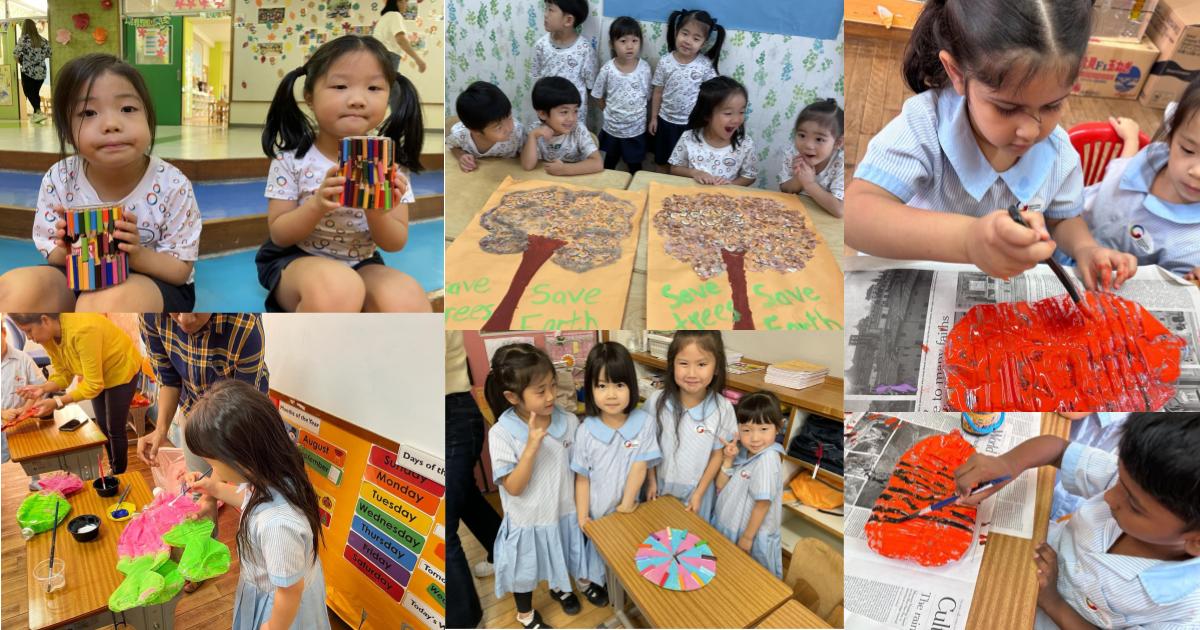
In today's world, the need for environmental awareness and responsible resource management has never been more crucial. Even in our youngest generation, instilling a sense of civic responsibility and sustainability is paramount. One surprising area where environmental concerns have often been overlooked is in our kindergarten classrooms. These seemingly innocent spaces can generate a significant amount of waste, contributing to larger environmental issues. To tackle this challenge head-on, we have initiated a project aimed at turning waste into an educational opportunity.
The Kindergarten Waste Challenge: Kindergarten classrooms are vibrant hubs of creativity and learning. Unfortunately, this creativity often leads to the generation of waste, which can be classified into two categories: biodegradable and nonbiodegradable waste. Biodegradable waste includes items like pencil shavings and broken crayons, while nonbiodegradable waste comprises markers, glue sticks, and plastic bottles. Without the knowledge of recycling and waste reduction, children may not appreciate the importance of conserving resources, ultimately growing up without a sense of civic responsibility.
A Creative Solution: Our project's purpose is clear: to not only reduce waste but also provide young children with an engaging and educational experience by converting classroom waste into creative and eco-conscious crafts. We have also taken a step further by upcycling pencil shavings and old crayons into unique creations fit for a kindergarten masterpiece.
Our Aims:
-
Promote Environmental Awareness: Our project is a platform for educating young minds about the 5Rs: Refuse, Reduce, Reuse, Repurpose, and Recycle. These principles instill a lifelong understanding of responsible resource management.
-
Reduce Plastic Pollution: By diverting plastic waste from landfills and incinerators, we give these materials a second life as colorful, imaginative crafts. This not only reduces plastic pollution but also imparts valuable lessons about upcycling.
-
Reduce Classroom Waste: Our efforts are geared towards significantly reducing the amount of waste generated within the classroom. Waste reduction begins at an early age, and our project sets the stage for a future of eco-conscious decision-making.
-
Foster Creativity: Our young learners are encouraged to think outside the box, turning seemingly mundane waste materials into vibrant, imaginative creations. This fosters creativity and problem-solving skills from an early age.
-
Enhance Fine Motor Skills: Engaging in crafts and upcycling activities also provides children with the opportunity to enhance their fine motor skills. Cutting, gluing, and shaping materials contribute to their overall development.
-
Engaging and Fun: Recycling materials through creative crafts makes the learning process enjoyable and memorable for students. It's a hands-on approach to understanding the importance of sustainability and waste reduction.
Our project combines waste reduction, creativity, and sustainability education to create a meaningful and engaging experience for kindergarten children. By promoting environmental awareness, reducing plastic pollution, minimizing classroom waste, fostering creativity, enhancing fine motor skills, and making learning fun, we hope to instill a sense of civic responsibility and environmental stewardship in our young learners. Through these efforts, we are nurturing a generation that not only appreciates the value of resources but also actively contributes to a more sustainable and eco-conscious future.
GIIS Tokyo Communications
- 0
- 0




Comments ({{totalComments}})
Login to post a comment...
{{comments.CommentText}}